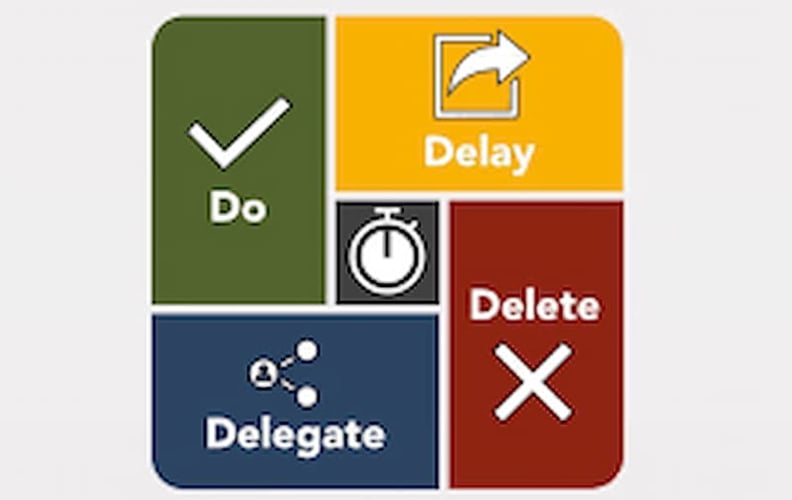I’m fairly certain that successful professionals and entrepreneurs like Elon Musk, co-founder of Tesla Motors and PayPal have the same 24 hours in a day like the rest of us mere mortals.
Yet somehow they are able to accomplish more in their 24 hours than seems humanly possible.
You’re thinking well of course they can move mountains, they have hoards of people working for them...well yes.
They do now, but they didn't start out that way.
They no doubt started out understaffed, overwhelmed and stressed out by their workload like most of us do.
What sets them apart is at some point they figured out how to free up and leverage the existing time they had in order to focus on the responsibilities that really mattered and moved their business forward.
But how does one go about freeing up time from one task to focus on other work projects?
.webp)
Jackie Bavaro, Asana Product Manager, previously at Google and Microsoft says, if you want to spend less time on certain tasks and more time on responsibilities that matter, you need to consider one of these four approaches: delete it, defer it, diminish it, or delegate it.
1- Delete it
Not all work is equal. Some work is less important, some work is more important. Deleting those low-value or non-essential tasks is one way to free up more time. Yes It can feel counter intuitive and scary to delete work from your routine but “deciding what not to do is as important as deciding what to do”.
Ask yourself what tasks you can delete with no negative effect or what tasks you can say no to upfront with no negative effects.
2- Defer it
Some tasks can’t be deleted but can be delayed. For these types of tasks, deferring responsibility is an excellent option. By deferring tasks to a later date, you are allowing your mind to stay clear and focused on what is important now.
That said, make sure you have a system or process in place to remind you to complete the task at some specific date in the future.
3- Diminish it
When you absolutely must own a responsibility yourself or continue doing a particular task, see if you can find ways to reduce the frequency, shorten, or consolidate the time you spend on that particular type of work.
A great place to start is with emails and the dreaded recurring meetings. Do you really need to attend every single meeting or check your email every 10 minutes?
- Meetings: According to software company Atlassian, employees and most professionals attend 62 meetings a month, 31 hours in unproductive meetings, and an estimated 25-50% of those meetings are considered wasted time.
- Email: A 2012 survey conducted by McKinsey Global Institute revealed that workers spend on average 2.6 hours per day (more than a quarter of the day) reading and answering email.
For other work, consider stopping when your output is good rather than perfect.
4- Delegate it
For other tasks that must be completed, ask yourself if they must all be completed by you. If not than consider delegating to another teammate. If you have no one to delegate to or everyone on your team already has too much to do than you may want to consider hiring a virtual assistant. Just remember, delegating responsibility might seem simple but it can be challenging.
Related: Tips for Effective Delegation
Related: Delegating tasks: How Do I Know If I Should Delegate A Task Or Not? Infographic.
The next time you're feeling overwhelmed or need to make more time for new responsibilities that you don’t have time for, remember the four D’s: delete, defer, diminish and delegate.
If you’re not sure where or how to get started with the four D's, begin by looking at your daily activities and make a list of the ones which are:
Chances are at least a quarter of your typical work day may fall into one of these two categories and you could end up with 10 hours of extra time per week.
